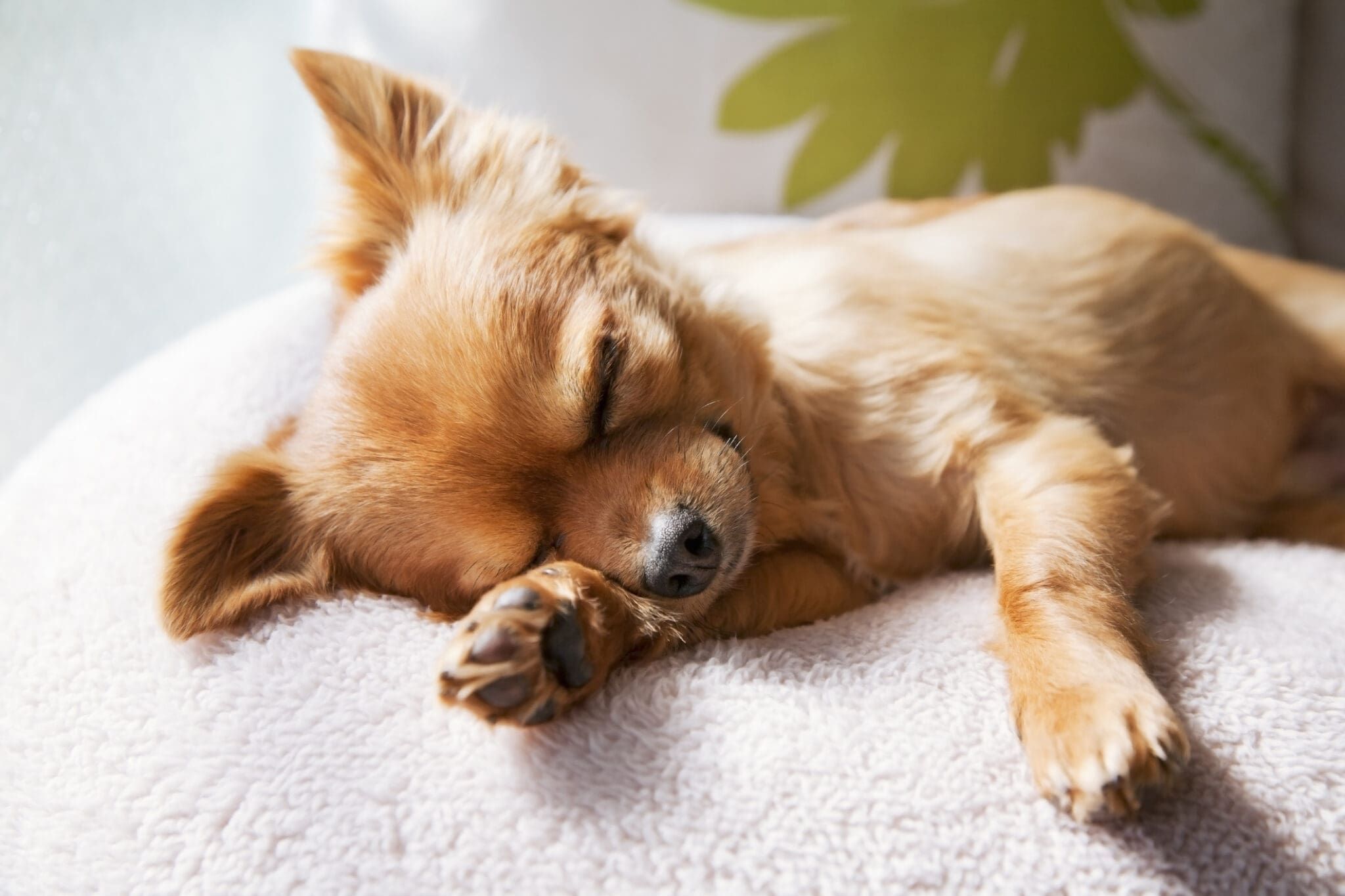Few things in life are as rewarding as the sight of your dog sleeping—seeing him curled up in a sunbeam or sprawled contentedly across the floor brings a sense of peace. And if you have a puppy or highly active dog, you might even feel a sense of accomplishment (or relief!).
However, when you get past that feeling of satisfaction, do you wonder how many hours a day do dogs sleep? The answer, like most things involving your pets, isn’t a one-size-fits-all one. A dog’s sleep requirements are influenced by their age, breed, activity level, and individual makeup.
Hours of Dog Sleep By Age
Puppies and power naps: Puppies are boundless energy one minute, then a cuddly heap the next. Because their bodies and brains are constantly developing, they need a lot rest to fuel their growth. Little is known about how long puppies under 4 months of age sleep, according to a study in Animals. The study found that once puppies are 4 months old they slept more during the day and less at night than 12-month-old puppies. Puppies do tend to alternate between bursts of high energy and short naps as they explore and process the world around them. If you’re having trouble getting your pup to sleep, trainer Kathy Callahan has excellent ideas.
Adult dogs sleep more like a person: As your dog matures, their sleep needs gradually decrease. According to a 2020 study from “Current Opinion in Behavioral Sciences,” adult dogs, typically sleep between 7.7 and 16 hours a day for an average of 10.1 hours per day.
Senior dogs sleep like a pup: As dogs enter their golden years, their sleep needs often increase again. This increase can be attributed to several factors, including decreased physical activity levels, changes in cognitive function, and potential health issues that may cause fatigue and pain when sleeping.
A dog’s activity level can also influence sleep needs. Working dogs like Border Collies or Australian Shepherds bred for specific tasks like herding tend to sleep less than their more relaxed counterparts. These active workers expend a lot of energy throughout the day and may require only closer to 10 to 12 hours of sleep, according to Tractive, a company that produces sleep trackers for dogs and cats. And dogs can be disturbed when they sleep by nightmares, twitching, and incontinence, just as people are.
10 Signs Your Dog Needs More Sleep
While dogs sleep a lot, a sudden change in habits can signal exhaustion. Watch for these 10 signs based on suggestions from WitsEnd, a physiotherapy website for dogs:
- Like overtired toddlers, exhausted pups may act hyperactive.
- Tired dogs, like tired people, get irritable and lose self-control.
- Overexertion can lead to joint or heart problems in overtired dogs.
- Is your dog ignoring walks, toys or food? They might be sleep-deprived.
- Yawning is a common sign of tiredness but can also indicate stress.
- Confusion or forgotten commands could be due to exhaustion.
- An unusually lazy dog is likely in need of a rest.
- Frantic bursts of energy (aka, zoomies) in a normally calm dog can be a sign of overtiredness.
- Easily distracted dogs during training might be too tired to focus.
- Excessive panting or licking can indicate stress or fatigue, especially after activity.
If you notice these signs, allow your dog plenty of rest. And, of course, consult your veterinarian if the signs persist.

